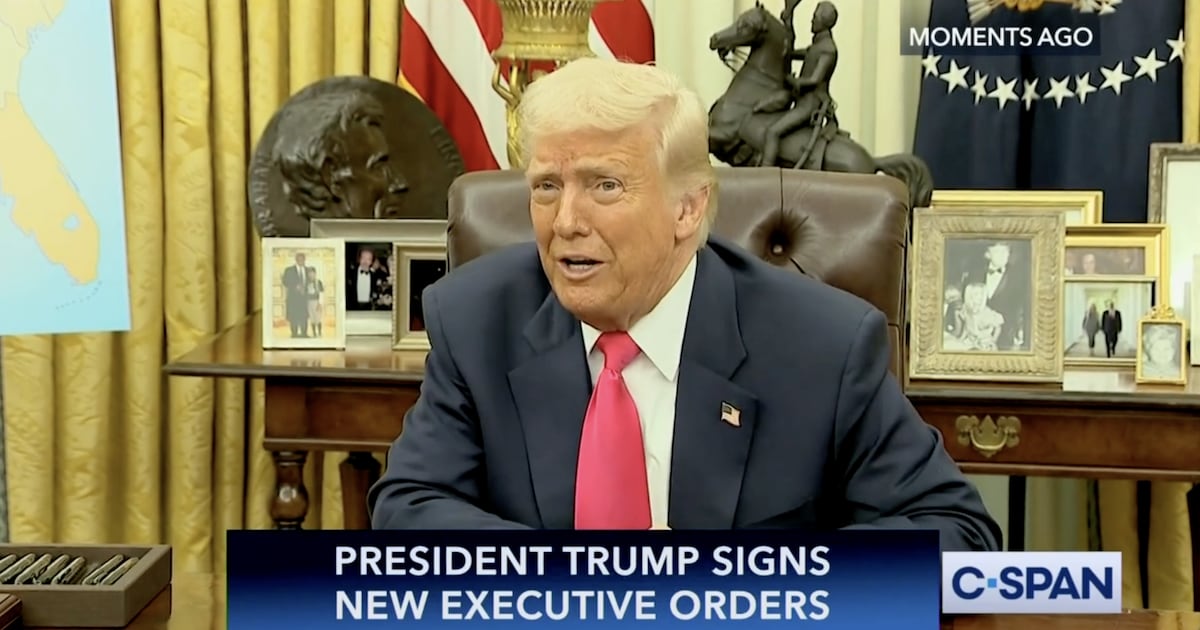In 1981, when I was the New York Times restaurant critic, Donald Trump already was considered a bragging self-promoter and a killer real estate magnate.
So in the spring of that year, I proceeded with extra caution during the four or five meals I had at Trumpets, the then new, attractive, modernist restaurant installed in the Grand Hyatt Hotel that the Donald owned and extensively remodeled.
I concluded that it was a very sincere effort, with enough winners to make it an option, but with much work needed on food and service to be anything more. My one-star rating, meaning “Good,” usually provoked strong protests from restaurateurs who felt damned with faint praise.
Expecting a rant of the sort we recently have come to know, I had a pleasant surprise a week or so later, by way of a short, gracious note signed, Donald Trump. He thanked me for one of the fairest reviews he had ever read and also for my suggested improvements that they would seriously consider. (Alas, I did not save that letter. Think of what it might be worth if he becomes president and, maybe, even more if, hopefully, he does not!)
I, in turn, sent him a thank-you note for his understanding. So, in a detached way, we became pen pals.
I cannot quite recall what prompted it, nor even the exact date, but around 1989, when I had been gone from the Times for five years, I had occasion to call his assistant, Norma Foerderer, to check a fact. She suggested that Donald and I discuss things over lunch, not at McDonald’s or KFC, his currently reported fast-food favorites because they are clean, but rather in the stunning antique Edwardian Room of the Plaza Hotel, which he had recently bought. “But please do not try to shake hands with him,” she warned. “He does not like to touch people.”
The lunch in that iconic room proceeded most pleasantly with Donald showing no weird food preferences and though he ordered no alcohol, neither did I, this being lunch. We had a frank discussion about my leaving the paper and he was an attentive lunch date.
Fate brought us together again, in 1993, when I was researching a story about cake decorating and learned that a 7-foot-tall, sugar-flower-strewn cake was being made by Sylvia Weinstock (still the queen of over-the-top celebration desserts) for the wedding of Donald to Marla Maples.

I called Foerderer and asked if I could slip in before the festivities to view the cake. “You can only see it if you and your husband come to the wedding,” she said.
And so the next evening, done up in full formal garb, my late husband, Richard Falcone, and I entered the Plaza Hotel to snake our way through a thousand of the couple’s closest friends. The guest list read like a who’s-who of New York politics, theater, business and sports with my favorite sightings being Jerry Orbach, Robert Morgenthau, Graydon Carter, and O.J. Simpson, who had not yet been tried for killing anyone.
The ceremony was held in a mezzanine room fitted out like a chapel and decked out with stands of white birches and garlands of white orchids, the flowers that graced the old-timey (read, corny) wrist corsages of the bride’s attendants and female relatives. Her white satin gown did not quite hide the bulge of her budding pregnancy (daughter Tiffany, of convention fame, was the result).
The wedding feast sprawled all through the hotel lobby, laid out cafeteria-style with buffet islands, each featuring a particular food, such as roasts, salads, cheeses, pastas, shellfish, caviar and more. That triple-o beluga caviar was spooned out of big blue original tins into deep bowls, much like oatmeal would be. So large were the portions, that many guests dumped extras into the planters around the room.
At the shellfish island, we found ourselves behind O.J. and my husband, one of his devout fans, said, “OK, O.J. Run interference for us.”
“Are you kidding?” came the answer. “These people are ferocious.”
Finally, the towering cake was cut by bride and groom in the traditional ceremonial way, and after about an hour it was whisked away, never to be served. Weinstock and her husband, Ben, stayed late to remove the flowers so the hotel chef could not pass them off as his own, and City Harvest collected the cake to be distributed among the less fortunate. (Not that guests were lacking desserts, as many were laid out for the taking.)
Although I did not send a gift to the newlyweds-who-had-everything, I briefly considered a copy of my book, From My Mother’s Kitchen, but doubted its Eastern European Jewish recipes would tempt them. Actually, Donald might have passed it on years later to his now Jewish daughter, Ivanka, and her observant husband, Jared Kushner.
As reported by the canny New York magazine writer, Julie Baumgold, “There wasn’t a wet eye in the place.” And a waste of such sentiment it would have been: This was doomed to be the briefest of Donald’s three marriages, at least so far. The current score: 15 years with Ivana, a mere six with Marla and, with Melania, 11 and still counting.

My final conversation with Donald came in 1998, when I was writing a freelance article about the charms of the Coney Island boardwalk in winter for the Weekend section of the Times. Knowing that the Italian restaurant Gargiulo’s, then one of my favorites in the area, had long been a lunch-time meeting place for local business moguls, such as Donald’s red-haired father, Fred, and members of the Waldbaum supermarket family, I asked if Donald had ever joined the group. He said that it was at Gargiulo’s that he made his first real estate deal, as an after-school employee of his father’s firm. That firm, in fact, had established its early post—World War II foothold building modest housing in that part of Brooklyn, as well as in Queens.
Donald ended that 40-minute or so phone call with a somewhat disgruntled afterthought about being rebuffed when he had offered to pay for the removal of the famous but non-working parachute jump, a relic of the 1939 New York World’s Fair, which he regarded as an eyesore.
Looking back, I noticed nothing alarming about his hair, which perhaps was less florid then, nor of his recent incipient boorishness, which was possibly held in check because I represented the press.
As for the size of his hands, if I ever get to shake one, I’ll let you know the truth.






